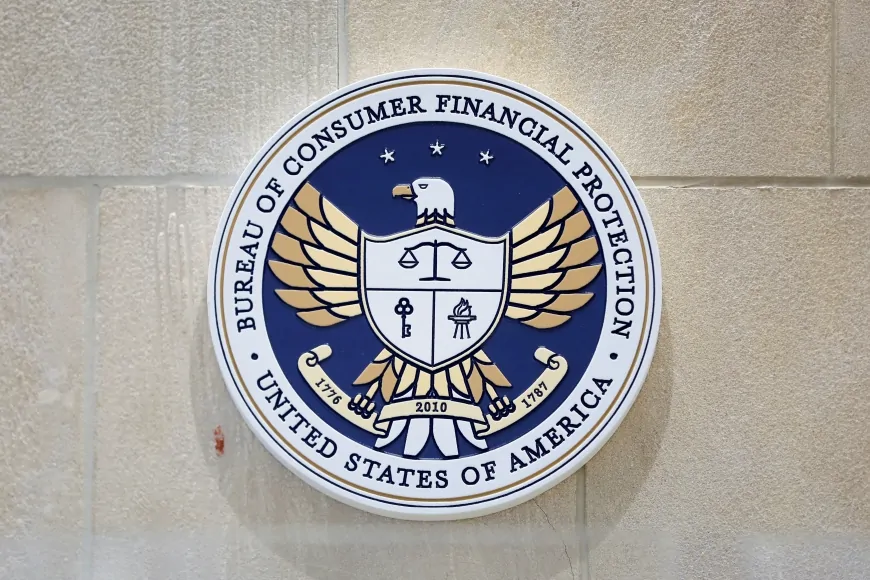CFPB Seeks to Reverse Townstone Financial Settlement, Citing Free Speech Concerns
The CFPB wants to undo its $105K settlement with Townstone Financial, citing First Amendment violations. Could this reshape lending discrimination laws?

The Consumer Financial Protection Bureau (CFPB) has requested a court to undo its previous settlement with Townstone Financial, a Chicago-based mortgage lender. The company had been accused of discriminatory practices against Black homebuyers, but the CFPB now claims the case was marred by flawed investigations and violations of free speech rights.
Background of the Case
The controversy began in 2020 when the CFPB accused Townstone of engaging in discriminatory practices by discouraging Black applicants through derogatory comments about Chicago’s predominantly African American South Side. The remarks were made on the lender’s self-produced podcast and AM radio show, “The Townstone Financial Show.”
In one episode, Townstone’s CEO referred to the South Side’s weekends as “hoodlum weekend” and compared it to a “war zone,” while another host likened walking through the neighborhood at night to the thrill of skydiving. Additionally, the hosts disparaged predominantly Black suburbs and made racially insensitive comments about local grocery stores.
The CFPB alleged that these statements deterred minority applicants and constituted a modern form of redlining, violating the Equal Credit Opportunity Act (ECOA).
CFPB's Sudden Reversal
After securing a court-approved settlement and a $105,000 fine from Townstone, the CFPB now argues the investigation was flawed. The agency claims that Townstone’s First Amendment rights were infringed upon, and the case was built on misrepresented evidence.
In its motion to dismiss, the CFPB highlighted the lack of direct evidence showing Townstone's remarks discouraged actual loan applicants. It also noted that just 16 minutes of controversial audio from over 78 hours of recordings were used as the basis for the case.
Acting CFPB Director Russ Vought emphasized that the agency’s reversal was part of the Trump administration’s broader effort to curb what it calls the misuse of regulatory power under the guise of diversity, equity, and inclusion (DEI) initiatives.
Debate Over Free Speech and Discrimination
At the center of this legal battle is the balance between free speech rights and anti-discrimination laws. While companies have the right to express opinions, their speech can cross the line if it discourages potential customers from seeking services based on race or ethnicity.
Legal scholars are split. Some argue Townstone’s comments, though offensive, are constitutionally protected. Others say the statements directly discouraged minority applicants, making them a form of commercial speech subject to regulatory oversight. Courts often apply stricter standards when companies use free speech as a defense in cases of alleged discrimination.
This case has also sparked broader discussions about how regulators define and prosecute discriminatory lending practices. While clear-cut cases of redlining typically involve denying loans based on race, discouraging applicants through harmful rhetoric presents a more complex legal challenge.
Varied Responses from Experts and Advocates
The CFPB’s decision has triggered strong reactions. Sam Levine, a former Federal Trade Commission official, called the reversal unprecedented, noting the rarity of government agencies seeking to undo their own victories.
Consumer advocates like Lisa Gilbert from Public Citizen criticized the move, warning that it sets a dangerous precedent for companies to challenge past settlements. On the other hand, conservative groups welcomed the decision, asserting that it upholds free speech rights and corrects what they see as regulatory overreach.
Meanwhile, financial institutions are watching closely. Some legal experts believe the case may embolden companies to challenge previous rulings by arguing free speech protections were overlooked.
Impact on Lending Regulations
The Townstone case could significantly influence how future lending discrimination cases are prosecuted. Regulators may face greater scrutiny when attempting to prove companies have discouraged applicants through speech rather than through traditional discriminatory actions.
If the court agrees to overturn the settlement, it could also encourage financial institutions to challenge past rulings, leading to a wave of reopened cases. Conversely, a refusal to dismiss the settlement would reinforce the government’s authority to regulate harmful commercial speech under federal laws.
What Borrowers Should Know
For borrowers, particularly those in historically redlined communities, the outcome of this case will be closely watched. While the CFPB’s reversal may raise concerns about the agency’s commitment to fair lending, it also underscores the importance of vigilance in financial regulations.
Consumers should remain aware of their rights under the ECOA, which protects against lending discrimination. Advocacy groups and legal aid organizations are available to assist those who believe they have been unfairly denied loans or discouraged from applying.
Upcoming Court Decision
US District Judge Franklin Valderrama will decide whether to grant the CFPB’s request to dismiss the settlement. Regardless of the ruling, the case is expected to set a precedent for future enforcement actions, corporate accountability, and the ongoing debate over the limits of free speech in the financial sector.
Also Read: Trump's $1.5 Billion Vietnam Investment — What's Behind This Big Move?































































